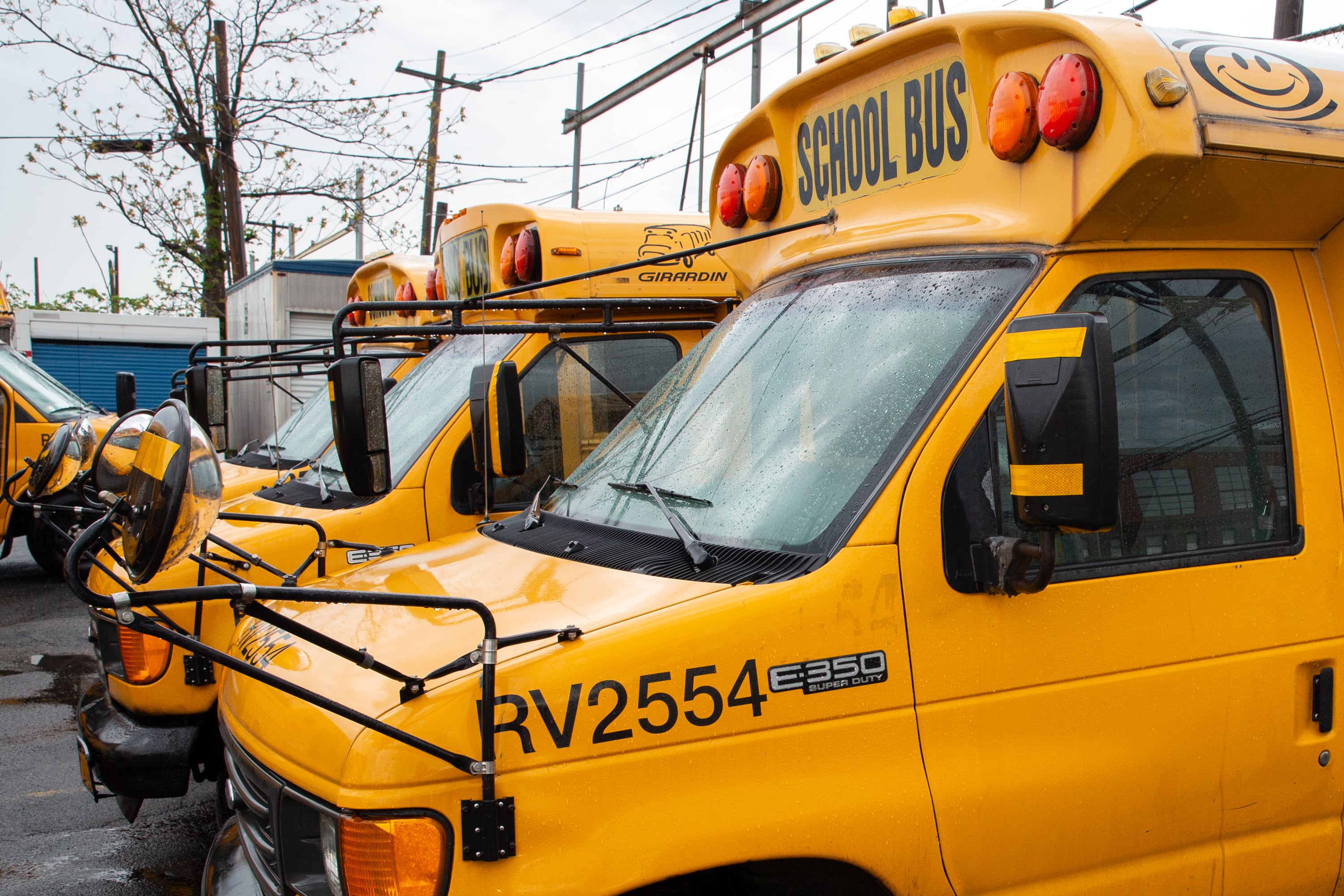This is part of an ongoing collaborative series between Chalkbeat and THE CITY investigating learning differences, special education, and other education challenges in city schools.
With less than two weeks to go before the school year is set to begin, the city’s education department hasn’t finalized any contracts with school bus companies that typically transport over 150,000 students, according to education officials.
During a virtual meeting on Thursday between parents and top education department officials, Department of Education chief operating officer Ursulina Ramirez acknowledged that yellow busing may not be ready by September 10.
“Right now we don’t have any contracts solidified for the fall, but we are working diligently to solidify those contracts so that we have routes set for our students,” Ramirez said. “We do not have everything firmed up right now, but that does not mean that it’s completely off the table. It is just something that we are working diligently to try and address.”
Of the 10 largest school systems in America, New York City’s is the only one planning to reopen its buildings at the start of the academic year, though educators have grown increasingly worried that the system is not prepared to reopen. The lack of bus contracts, which were canceled to save money shortly after school buildings shut down, could be one more obstacle to reopening on time, some advocates fear.
“There’s now a race against the clock — the DOE needs to negotiate contracts and then, in addition, needs to determine the routing with more complicated schedules and the health and safety protocols,” said Randi Levine, a policy director at Advocates for Children.
Ramirez noted that the highest priority among students who are slated to receive yellow busing are students with disabilities and those living in temporary housing. About 50,000 students with disabilities are legally entitled to yellow bus service, according to their individual education plans. The city has reportedly considered reserving bus service for them this fall and curtailing service for elementary and middle school students who receive bus service because they live far from school but don’t have a disability.
Ramirez said education officials are working “literally night and day” to iron out contracts, but that back-up plans to reimburse families for car service and to distribute MetroCards are also being prepared.
She noted that principals are still working on schedules for their students — a process that’s far more complex than normal because of a blended learning model that will have most students attending school in person between one to three days a week. The remaining days they’ll be learning remotely, while some families have opted to have their children taught remotely five days per week.
Among them is Grisel Cardona, who said it was the uncertainty of the yellow bus service that led her to keep her 10-year-old son, Christopher, learning from home in the coming school year. Her family lives in the Mount Eden neighborhood of The Bronx, while Christopher attends a District 75 school for children with special needs — PS 352X at PS 75 — in Hunts Point.
“I picked full remote [learning] because I don’t know what’s going to happen with busing and my son’s school is a bit far,” said Cardona, who also has an 8-year-old daughter and a 2-year-old son. “For me to take my son to school and then my daughter and then with my other baby — it’s too much.”

While selecting remote learning for her son has lessened her anxiety for herself, she says that as an advocate on the District 75 community education council, she’s concerned for other parents who are still waiting for information.
“The question is how fast are they going to work on the contracts and how fast will a route get done?” said Cardona, 30. “We’re two weeks away from school and around this time they [usually] already have their bus routes ready for school. But that’s not the case right now,” she added. “It’s super frustrating.”
The education department’s bus infrastructure costs roughly $1.2 billion to run annually and is built on a patchwork of contracts with school bus companies, which have struggled to provide reliable service at the beginning of school years even without the pressures of a pandemic. Buses often arrive late or take long circuitous routes across the city; sometimes they don’t show up at all.
In 2018, Carranza fired a top executive responsible for school transportation amid a chaotic start to the school year. The city has considered buying the bus companies and operating service itself, the Daily News reported, and a department spokesperson said they are moving forward with that process.
Advocates fear that problems could be compounded this year. When the city shut down school buildings due to the coronavirus pandemic in March, officials faced enormous pressure to stop paying bus contracts as the vehicles sat idle — and they eventually did so.
That means the bus companies will have to quickly get back up and running, potentially rehiring workers who were furloughed and running routes that will be significantly more complex. Because most students will attend school one to three days a week, the buses may have to run different routes each day and must be in sync with schools about which days each student is supposed to be picked up.
Last year, more than 163,000 students received yellow bus service — including nearly 52,000 who got door-to-door transportation, according to education department documents.
It’s unclear how many buses the city will actually need this year. Fewer students will be attending classes in-person per day than last year, reducing the number of students who need busing each day. However, social distancing requirements will mean that the buses will run at about 25% of their normal capacity, city plans show.
Department officials said students and staff on buses must wear masks and bus companies will be provided with hand sanitizer, face shields and gloves. They will also receive “electrostatic sprayers” to help clean the buses overnight.
That still leaves actual service unsettled, despite a law the City Council passed last year that requires the education department to provide parents detailed information on students’ bus routes at least 15 days before the start of the school year.
With fewer than two weeks before the slated first day of school, parents have yet to receive any of that information, according to advocates.
Additionally, the planned launch of a new routing system — coordinated with GPS devices that were supposed to be installed in yellow buses — was postponed because of the coronavirus crisis, education officials said. That system for the first time would have provided families with live updates of the location of their yellow bus through an app.
Lori Podvesker, a member of the city’s Panel for Educational Policy, which is controlled by the mayor but must sign off on major contracts, said the city has “tentative” agreements with bus companies on most routes and remained optimistic the buses will be rolling in time for the first day of school.
Still, she said it is problematic that thousands of parents don’t yet have details.
“Families are asked to make a decision on wanting full-time remote instruction for September without knowing what the schedule will be like in their child’s school and whether there will be busing or not,” Podvesker said. “You can’t make an informed decision without information.”






